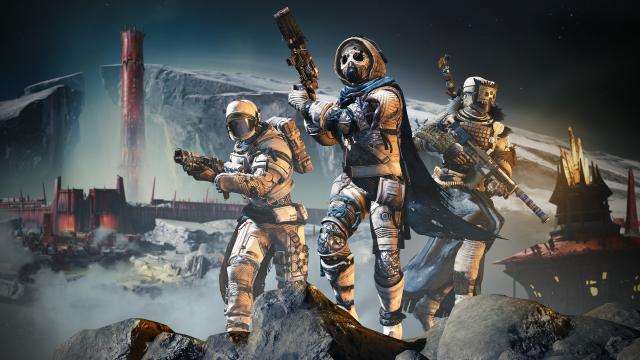
To those not all that familiar with gaming, the common misconception is that online play uses just as much data as streaming services like Netflix or Stan do. Of course, this isn’t the case unless you’re downloading full games or updates, but how much data can you expect to chew through during a decent session?
The answer varies depending on the game and can be as low as 3MB per hour up to a heftier 300MB per hour. It may not sound like much, but it all certainly adds up, especially for those with tight data allowances. For example, if we do the maths on a 300MB per hour session (Destiny 2 is a good example of a game that requires this amount of data), if you played online for two to three hours per day, you’re looking at roughly 4.2GB to 6.3GB per week, which equates to around 16.8GB to 25.2GB per month.
If you couple this with video streaming (which can use between 1GB and 3GB of data per hour) and other internet usages, a 50GB or even 100GB monthly data allowance can be wiped out pretty easily.
This is a fairly high-usage example, and not all games use quite as much as Destiny 2 does. Our friends over at telco comparison site WhistleOut have crunched the numbers on a bunch of games and how much data they use per hour of online play. I’ve ordered them from highest to lowest below.

- Destiny 2 – 300MB/hr
- Counter-Strike: Global Offensive – 250MB/hr
- Overwatch – 135MB/hr
- Dota 2 – 120MB/hr
- Warframe – 115MB/hr
- Fortnite – 100MB/hr
- Battlefield V – 100MB/hr
- Call of Duty: Black Ops 4 – 80MB/hr
- Team Fortress 2 – 80MB/hr
- Rainbow Six Siege – 70MB/hr
- Teamfight Tactics – 60MB/hr
- Grand Theft Auto V Online – 60MB/hr
- League of Legends – 45MB/hr
- PlayerUnknown’s Battlegrounds (PUBG) – 40MB/hr
- Call of Duty: World War II – 40MB/hr
- World of Warcraft – 40MB/hr
- Rocket League – 40MB/hr
- Minecraft – 40MB/hr
- Monster Hunter: World – 30MB/hr
- Sea of Thieves – 30MB/hr
- Final Fantasy XIV – 20MB/hr
- Hearthstone – 3MB/hr
Where gaming hits your data the hardest is the initial download. As games get larger and more detailed, the total size of their files can swell to 100GB or more. Red Dead Redemption 2, for example, clocks in at 89GB, while Call of Duty‘s Warzone will slug you with a 101GB download if you don’t already have the latest Modern Warfare patch.
The obvious solution is to go with a plan that offers unlimited data so you don’t have to worry about hitting your cap or being charged for extra usage, but these kinds of plans can get pricey. Some telcos offer alternatives that cater to gamers, like Optus’ Unlimted Data Days*, for example, which allows you to pay an additional $5 for each day you’d like to activate the add-on. As the name suggests, these days grant you unlimited data, which is perfect for tethering for big games or even just big weekend sessions.
It’s also a good option if you’re approaching your data cap. Given you’d be charged $10 for going over, $5 is a good way to split that cost and get more out of it.
Whichever way you accommodate gaming data, it’s good to have options for those particularly heavy download months (Cyberpunk 2077 in November, anyone?)
*For use on mobile phone devices in Australia only. Fair Go Policy applies. Not for commercial use. Add on may be withdrawn from sale without notice. Full terms and conditions here.

Leave a Reply